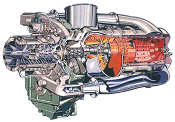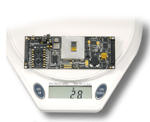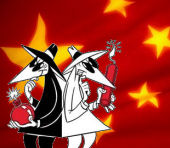 ABOVE:Rolls-Royce Model 250
ABOVE:Rolls-Royce Model 250
Engine
When an Iranian businessman based in Tehran arrived in the United States on Saturday, he was probably not expecting that his welcome wagon would be a contingent of special agents from the Bureau of Industry and Security (“BIS”), who promptly whisked him away and charged him with violating U.S. export laws restricting trade with Iran. The businessman, Hossein Ali Khoshnevisrad, was arraigned today in a United States District Court in San Francisco.
An affidavit filed by a BIS special agent provides a great deal of detail on the circumstances surrounding Khoshnevisrad’s business operations and his ultimate arrest. Not surprisingly to regular readers of this blog, Khoshnevisrad’s modus operandi was to interject front companies into the transactions to hide the ultimate end-user and destination of the exported goods.
Two series of transactions were detailed by the affidavit. The first involved the sale of Rolls Royce Model 250 helicopter engines. According to intercepted emails and correspondence described in the affidavit an un-named “Irish Trading Company,” which had purchased 17 of the engines, responded to a request from Khoshnevisrad’s company Ariasa AG with a proforma invoice for 8 of the engines. Thereafter, a number of these engines were shipped from New York by the “Irish Trading Company” to Khoshnevisrad’s designated consignee, Penerbit Kemas Sdn. Bhd, in Malaysia. Penerbit is apparently a Malaysian book publisher and distributor with a side business in “auto accessories” but with no apparent need for helicopter engines. The affidavit traces the journey of the engines to Malaysia, but stops there. No description is provided as to when, how or whether the engines went to Iran.
The second transaction involved two aerial panorama carriers which Khoshnevisrad’s company obtained through a “Dutch aviation parts supply company.” (I’ll bet that the Dutch company is Aviation Services International B.V., which was indicted in 2007 for selling U.S.-origin aircraft parts to Iran.). When the Dutch company, in response to an inquiry from the U.S. freight forwarder for the goods, inquired as to who was the end-user, Khoshnevisrad replied:
Regarding the end user as you know USA will not deliver to Iran in any case. You should give an end user by yourself.
The cameras are needed for the students at Geographical university to lern them how to film from the air.
Trust you can manage to get the cameras free.
Best regards,
HOSSEIN.
Ultimately the Dutch company shipped the cameras from the Netherlands to Khoshnevisrad in Tehran.
One puzzling issue in this case is why Khoshnevisrad, who knew that he was breaking U.S. law by arranging the export of U.S.-origin goods to Iran, would travel to the United States in the first place. The chance of him being arrested in, and extradited from, Iran on charges of violating the U.S. sanctions on Iran were, I’d say, pretty much on the same order as the chance that my dog, although a very clever dog, will graduate from college or win the Nobel Prize for Literature. The chances of him being arrested in the United States were pretty high. One has to speculate that some clever law enforcement techniques might have been used to lure him here.
UPDATE: The Washington Post story that I linked, as did other wire stories like this one, referred to Khoshnevisrad’s court appearance on Monday as an arraignment. The DOJ press release, however, characterized the court proceeding as an initial appearance. This would mean that an indictment has not yet been issued and that the arrest warrant for Khoshnevisrad was premised instead on a criminal complaint. If that is the case, the formal arraignment of Khoshnevisrad will occur, if at all, after an indictment or criminal information is subsequently filed.


 Posted by
Posted by  Category:
Category: 


 A criminal complaint (not yet available on PACER) was, according to news reports on the
A criminal complaint (not yet available on PACER) was, according to news reports on the 
 An indictment was returned on October 28, charging three men with conspiring to export carbon-fiber material to the China Academy of Space Technology (“CAST”). Certain types of carbon-fiber materials are covered by ECCNs
An indictment was returned on October 28, charging three men with conspiring to export carbon-fiber material to the China Academy of Space Technology (“CAST”). Certain types of carbon-fiber materials are covered by ECCNs 

